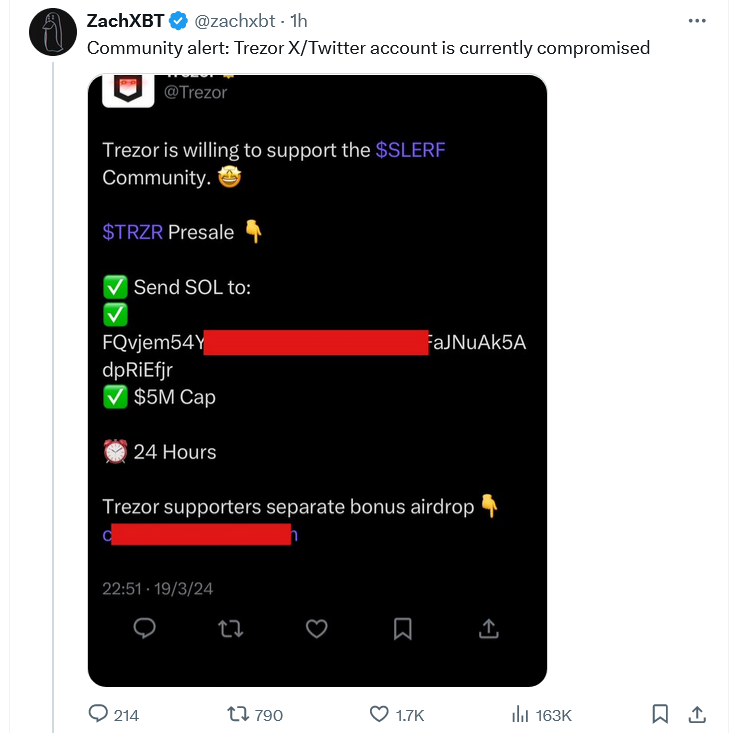Trezor had its official social media account compromised, leading to fake presale token sales.
Trezor, a company that manufactures hardware wallets, has published a series of malicious messages on its official X account, which led to fake presale token sales.
Trezor Hit by SIM-Swap Attack
These posts are believed to be the consequence of a SIM-swap assault. ZachXBT, an independent blockchain investigator, informed his 528,000 followers on X about the possible breach that occurred at Trezor in a post that he made on March 19 to X.
Within ten minutes, the crypto security firm Scam Sniffer also identified the suspicious activity as having occurred. The official website promoted a phony Trezor “$TRZR” presale token on the Solana networks through multiple posts.

These posts requested that users transmit cash to an address associated with a Solana wallet and featured links that led them to wallet drainers. In addition, ZachXBT highlighted the fact that the hacker had taken approximately $8,100 from Trezor’s Zapper account.
He posted this in a follow-up comment: “Imagine hacking the account only to steal $8.1K (which includes a 25% drainer fee). “There were also mentions of a new memecoin on Solana called Slerf, which was most likely employed to generate additional interaction. The posts included references to this memecoin.
However, we removed many malicious posts within a few minutes of their initial upload. John Holmquist, a crypto analyst and X user, referred to the most recent event as a significant loss.
He criticized the hard wallet manufacturer for not utilizing two-factor authentication (2FA) to protect its X account. “I highly recommend that you prioritize account security,” he emphasized.
Several individuals, including Pledditor, a user of X, thought it humorous that a company that focuses on the security of hardware wallets cannot safeguard its social network account.
“It’s hard, funny, and shameful at the same damn time” that they don’t take their counsel, remarked DigitalHustlerX, a user of the X platform. SatoshiLabs, the company behind Trezor, but the publication did not respond right away.
In January, Trezor experienced a security compromise that exposed the contact information of around 66,000 active users.
Based on the information on the company’s website, Trezor has successfully sold more than two million hardware wallets to clients since its inception in 2012.
Currently, the company offers three devices that, when combined, can keep more than nine thousand coins offline for customers.












